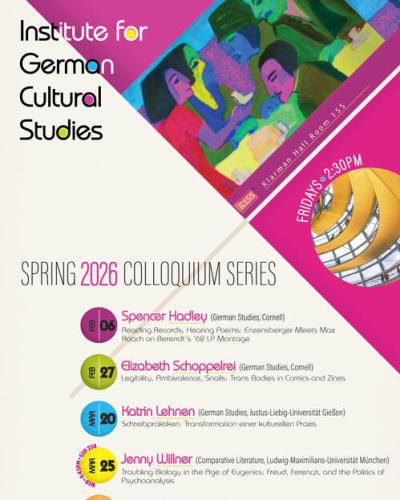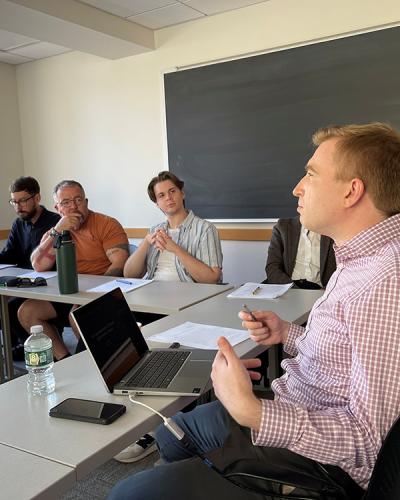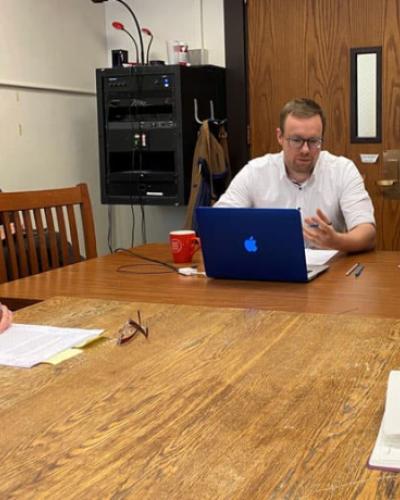At the IGCS colloquium on January 24th, Cornell PhD candidate Matthias Müller began by questioning the traditional assumption that history is written by the victors through an engagement with historian Reinhart Koselleck’s (1923-2006) thesis that history “may be made by the victors but is in fact written by the vanquished.” By investigating neither the origins nor the aftermath but precisely the moment of defeat and its “disruptive quality […] that unsettles culture-stabilizing narratives and stimulates critical engagement with the past,” Müller’s project continues an investigative course in line with Wolfgang Schivelbusch’s Die Kultur der Niederlage (2001). With recourse to Koselleck’s distinction between three types of writing history – Aufschreiben (recording), Fortschreiben (continuation), and Umschreiben (rewriting) as corresponding to the three ways in which experiences are acquired, Müller highlights the particular relevance of literature in this context, offering not only alternative accounts of the past but also visions of the future. With this, defeat functions as a generator of fiction by revealing the contingency of the present situation, and Müller consequently suggests defeat “as a narrative device that organizes the relation between temporality and knowledge.”
Müller’s paper drew from the introductory chapter to his dissertation, which explores historical moments in each of its three chapters by analyzing relationships between pairs of literary authors: 1) the period of WWI and work of Heinrich Mann and Alfred Döblin, 2) Thomas Thomas Mann and Ernst Jünger around 1945, and 3) the role of exile in the work of Anna Seghers and Siegfried Kracauer.
The discussion of Müller’s project revolved around the extent to which the question of the vantage point of the defeated informs current scholarly debates, how the binary opposition between victor and defeated might be able to accommodate additional factors (such as a third party involved in the conflict), the role of morality in this context (e.g., the danger of feelings of moral superiority on the side of the defeated), and whether this theoretical framework could also conceptualize non-military defeats. (Sophia Leonard)





